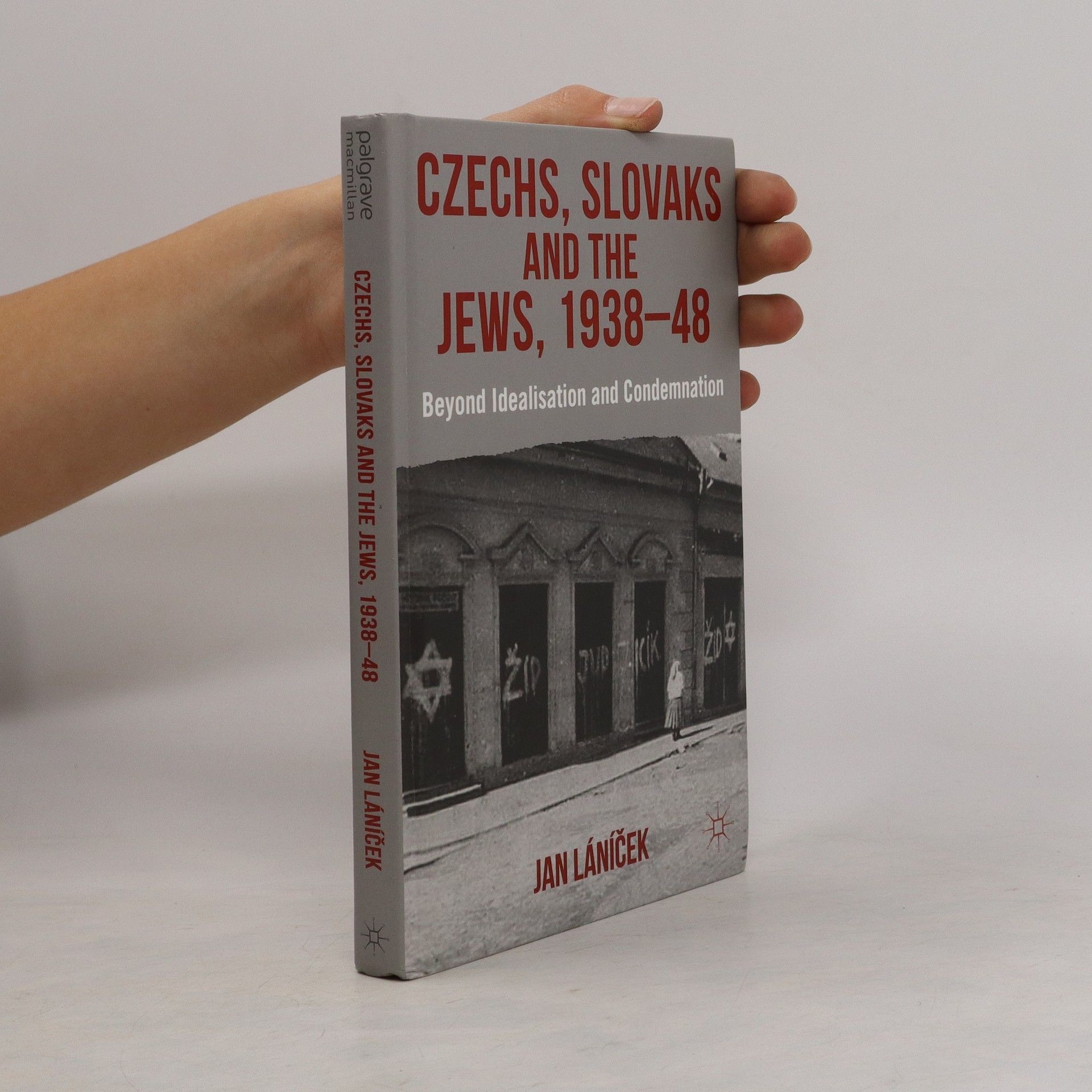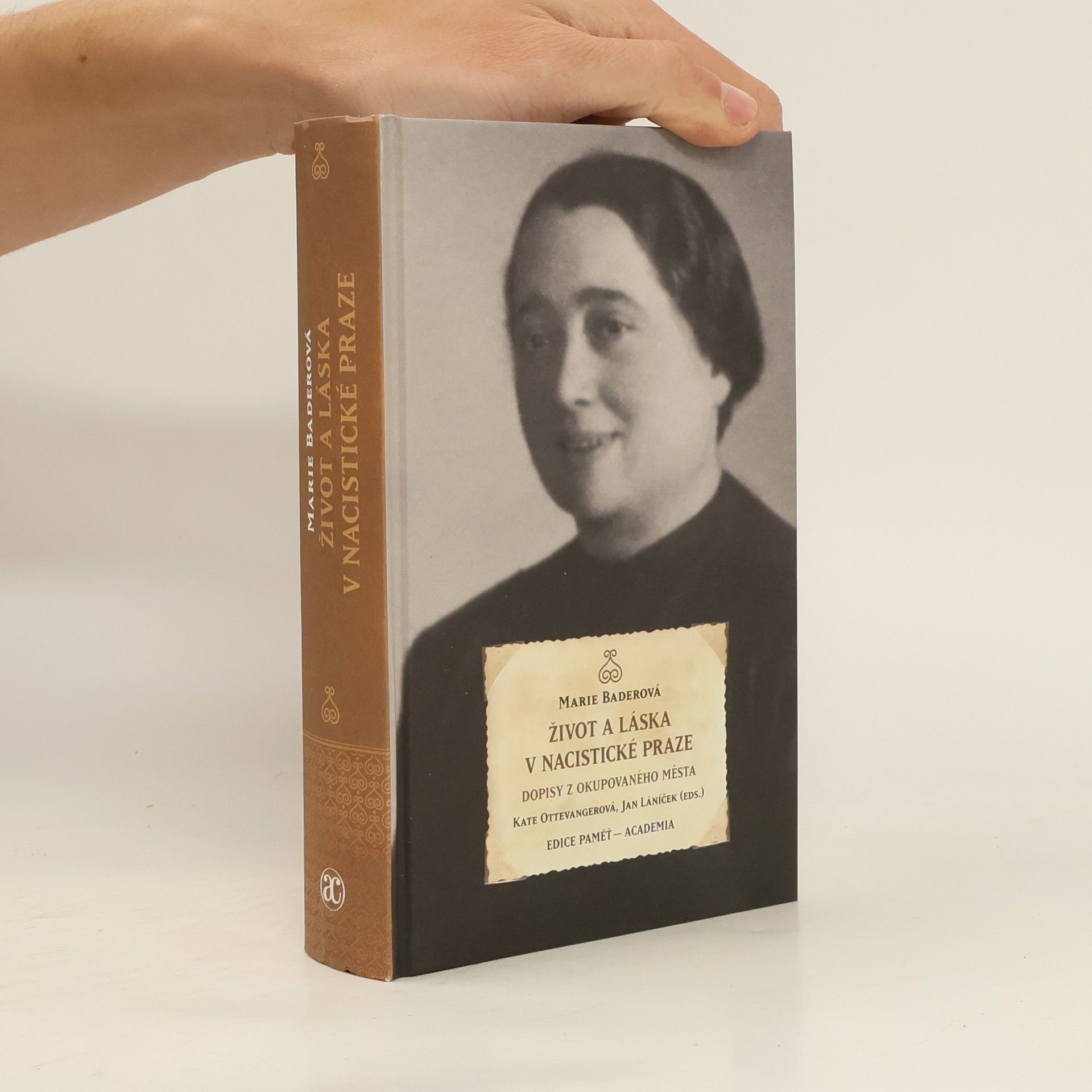Kniha se zabývá obdobím od mnichovské dohody z roku 1938 po komunistický puč v únoru 1948. Autor zpochybňuje tzv. mýtus Československa jako jediného demokratického státu ve střední Evropě a podrobně analyzuje politickou činnost Benešovy vlády v Londýně. Na základě archivních zdrojů dokládá, jak vztahy československého státu k židovské menšině ovlivňoval nacionalismus i zkušenost s okupací Čech a Moravy a odtržením Slovenska. Dokazuje také, že vládní podpora sionistického hnutí byla součástí plánů na přetvoření osvobozené republiky v homogenní stát Čechů a Slováků, k nimž patřil i poválečný odsun Němců.
Jan Láníček Knihy





Život a láska v nacistické Praze : dopisy z okupovaného města
- 532 stránok
- 19 hodin čítania
Město okupované nacisty v sevření vlády teroru Reinharda Heydricha. Židovská komunita čelí sílící perzekuci, šíří se zvěsti o deportaci a neznámém, ale o to děsivějším osudu. V této situaci se šestapadesátiletá vdova Marie Baderová zamilovala do svého rovněž ovdovělého vzdáleného bratrance Ernsta Löwyho. Ernst uprchl do Řecka a s Marií si vyměnil řadu milostných dopisů, které přinášejí živý, dojemný a často dramatický obraz života Židů v okupované Praze; ukazují, jak nacistické pronásledování zasahovalo do Mariina života a stále napjatějších rodinných vztahů, ale i do života širší židovské komunity v době, kdy Heydrich nechal založit terezínské ghetto a začal s organizovanou deportací židovského obyvatelstva.
Czechs, Slovaks and the Jews, 1938-48
- 265 stránok
- 10 hodin čítania
Covering the period between the Munich Agreement and the Communist Coup in February 1948, this groundbreaking work offers a novel, provocative analysis of the political activities and plans of the Czechoslovak exiles during and after the war years, and of the implementation of the plans in liberated Czechoslovakia after 1945.
Arnost Frischer and the Jewish Politics of Early 20th-Century Europe
- 288 stránok
- 11 hodin čítania
In this analysis of the life of Arnošt Frischer, an influential Jewish nationalist activist, Jan Lánícek reflects upon how the Jewish community in Czechoslovakia dealt with the challenges that arose from their volatile relationship with the state authorities in the first half of the 20th century. The Jews in the Bohemian Lands experienced several political regimes in the period from 1918 to the late 1940s: the Habsburg Empire, the first democratic Czechoslovak republic, the post-Munich authoritarian Czecho-Slovak republic, the Nazi regime, renewed Czechoslovak democracy and the Communist regime. Frischer's involvement in local and central politics affords us invaluable insights into the relations and negotiations between the Jewish activists and these diverse political authorities in the Bohemian Lands. Vital coverage is also given to the relatively under-researched subject of the Jewish responses to the Nazi persecution and the attempts of the exiled Jewish leadership to alleviate the plight of the Jews in occupied Europe. The case study of Frischer and Czechoslovakia provides an important paradigm for understanding modern Jewish politics in Europe in the first half of the 20th century, making this a book of great significance to all students and scholars interested in Jewish history and Modern European history.